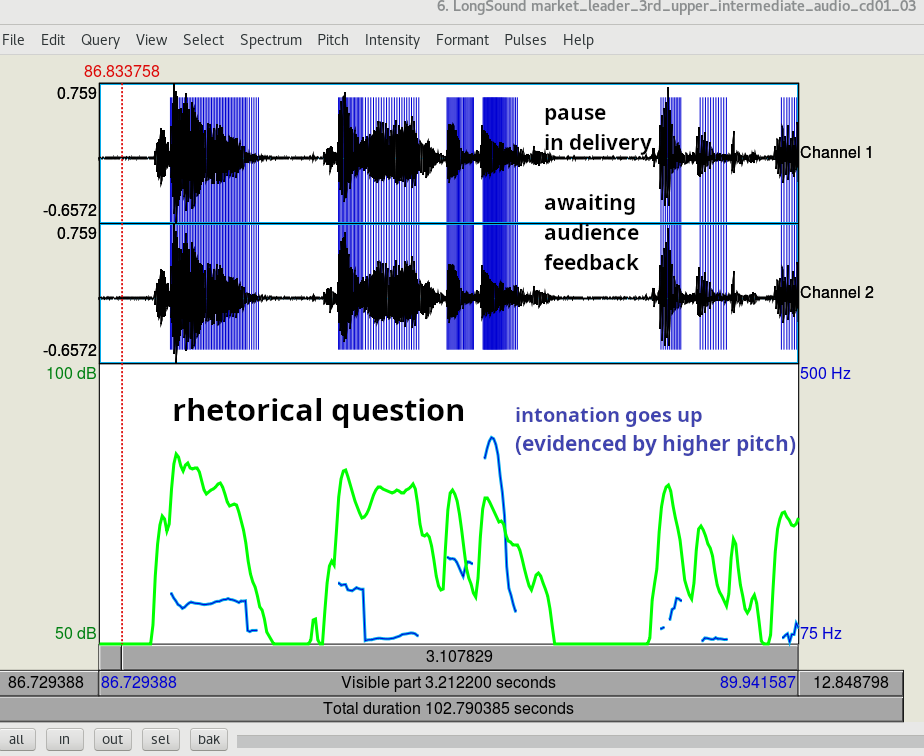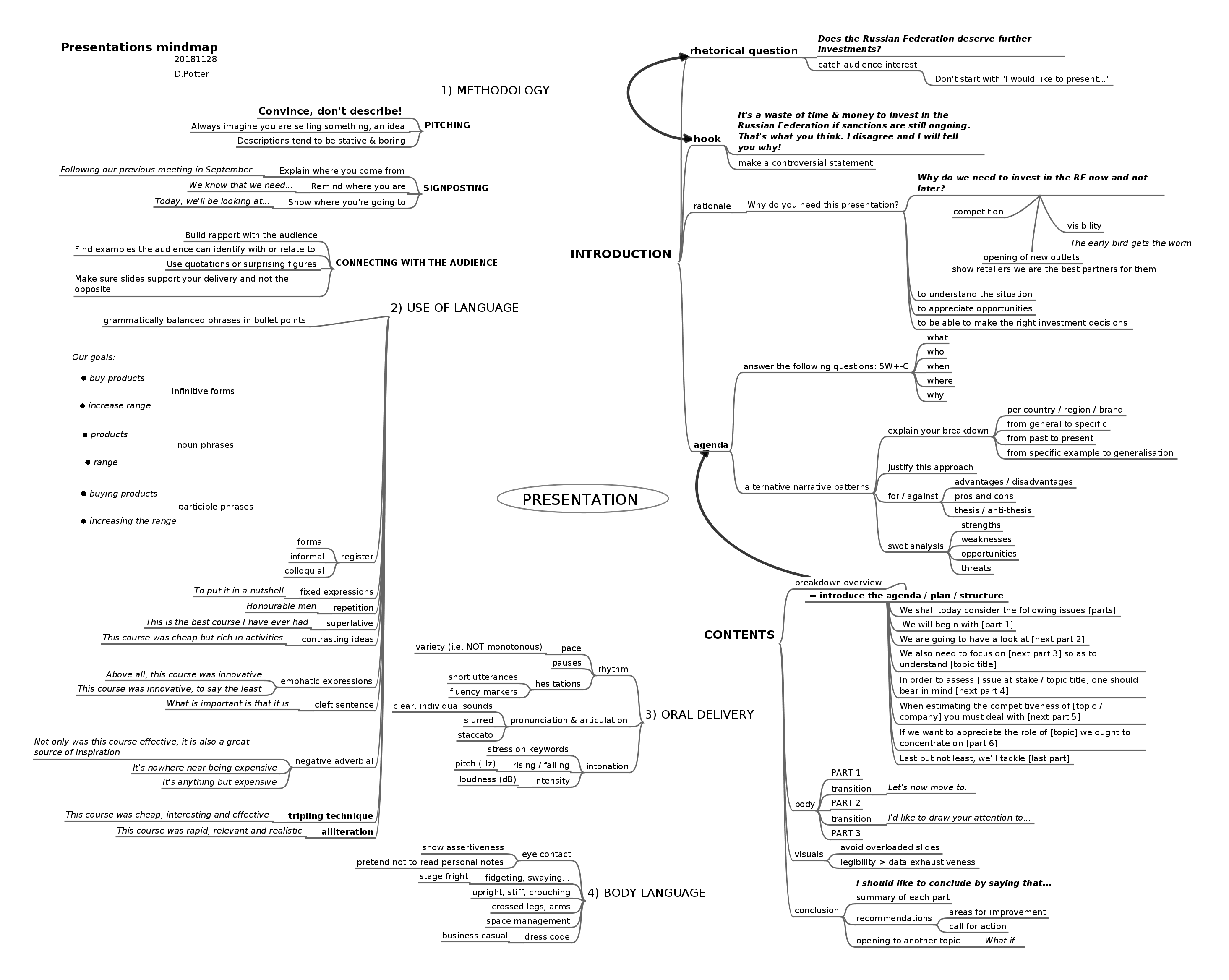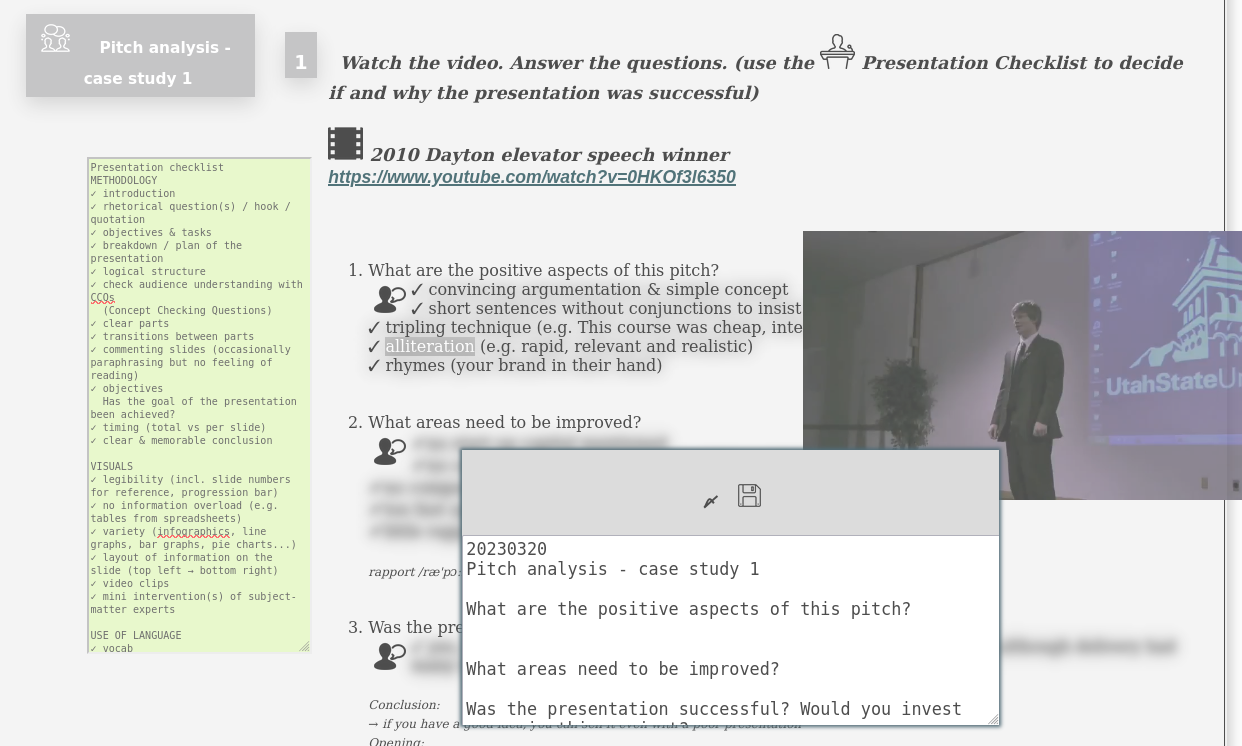PTEC - Presentation Techniques under the Eye of the Camera

Do public speaking and pitching effectively involve the same soft skills? Perhaps not...
Course contents sample based on ictnle.com authored materials preparing candidates to public speaking and pitching in a corporate environment
- How to use the structure of an elevator pitch for presentations
- Building rapport (understanding pitches vs public speaking)
- Dealing with questions and sound bites without advanced mastering of the language
- Functional language for presentations, grading language to various audiences
- Rephrasing to engage an audience of mixed linguistic abilities
- Signposting, paragraphing thoughts
- Story telling patterns & narratives (elevator pitch, Minto/McKinsey Pyramid, STAR, SWOT...)
- Drafting a presentation & preparing for oral delivery
- Scripting presentation notes & rehearsing for delivery

- Delivery with high-key theatre techniques vs low-key negotiating tone
- Audio analysis of voice modulation (use of a spectrogram with Praat)
- Video analysis of body language (how to face the camera, how to control giveaway signs of anxiety, power postures...)
- Evaluating sales pitches - Presentation Checklist
- Evaluating presentations - Case study - Making intangible communication awareness corporeal
- Lewis typologies (linear-active, multi-active, reactive) | How to pitch rhetorical questions which won't alienate your audience
- Hofstede cultural dimensions | How to overcome uncertainty avoidance & collectivism to win your audience over
- How to analyse a presentation & learn from mistakes, building self-confidence
- Presentations striking a compromise between pitches & public speaking
- Team presentation

Target groups
Although candidates have some experience in giving presentations and holding meetings, they need to:
- validate or argue commitment to goals at an annual performance appraisal
- give (descriptive) presentations and / or sales pitches
- conduct lectures at a seminar on a regular basis
- chair / hold meetings (brainstorming, solution finding, resolving a conflict...)
- deliver an elevator pitch & conduct negotiations

Goals
- overcome stage fright
- implement a repeatable approach
- be able to deliver even without advanced eloquence skills
- achieve qualitative consistency
- make communication time-effective but have a long-lasting impact
- Teacher: Duncan Potter